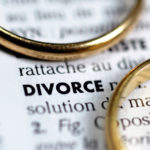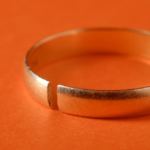6 Ways to Recover from an Abusive Spouse after Divorce

Anyone looking in on an abused person would probably think that the worst is over once the abuser is finally removed from the equation, and physically removed from the relationship. However, recovery for the abused after divorce is just the beginning of another long, and often difficult journey. It can be a tougher and more painful journey for the survivor in some ways, partly because they need to look inwards and heal slowly. The other part that hinders the healing is the doubts and perhaps the love that he or she still harbours for the other person that a survivor may wonder if getting out of the relationship through a divorce is really worth it.
If you find yourself in this situation, remember that you got out of the relationship because he or she is harming you. Remember that while you are a survivor of abuse, you are still your own person, and you will eventually walk out of the shadow of this nightmare.
Let us share 6 ways that you can use to recover from an abusive spouse after your divorce.
1) Stop living in denial
This is the first step towards recovery. It is the biggest step that you have to take as well as something that you need to do in order to trigger recovery. With the past abuse out in the open, known to your family and friends, you no longer have to pretend that it did not happen. What you can do now is to stop allowing those nasty things which you have gone through to trap you in a vicious cycle. Instead of denying them, acknowledged that they happened, and changed your mind set to see them as a life experience that shape the current you. It will help you to move forward in your new life.
2) Stay away from your ex-spouse and walk away from what you believe was love
Walking away from an abusive relationship is not a simple matter of just staying away physically. Your feelings do not go away immediately and the lingering pangs of love and intimacy haunt you. Nonetheless, you need to stay away from him or her, and slowly stop believing that whatever you had was love. Perhaps it has been love at first, but whatever you had before the divorce is no longer love.
3) Unlearn your unhealthy coping mechanisms
Living with an abuser has taught you many things – much of it unhealthy. You have learned to be submissive, silent, attentive to his or her every need. You devalue your self-worth, and learn to accept horrendous treatment as a part of punishment. You destroyed yourself for survival because you know that only that can keep you from harm. Now, you need to unlearn ALL of that. These behaviours and beliefs are not part of a healthy, supportive relationship. A healthy relationship depends on trust and the willingness to build each other up.
4) Rebuild bonds with your family and friends
Bonds with your family and friends may be broken due to your relationship with the abuser. This is especially so if you had previously denied the abuse and defended the abuser. Now that the past abuse is out in the open, your family and friends would want to support you, but they may not know if you would want that support. Some relationships may not regain the closeness you once shared because the abuser had come in between you previously. Nonetheless, try to rebuild your relationships with your family and friends. Learn how to enjoy their companionships and build upon the new connections that you now have with them again.
5) Forgive yourself
This is yet another big step for you – forgiving yourself. It is important to do this in order to heal. Forgive yourself for allowing yourself to be abused. Forgive yourself for the abandonment of your self-worth in preference to your abuser’s wants and needs. Forgive yourself for allowing the abuse. It is not an easy feat, because blaming yourself is second nature to you after the abusive relationship, but you can do it. Just have faith.
6) Love yourself again
It is hard to love yourself when you are blaming yourself for everything that had happened. Self-love is also something not encouraged by your abuser too. Years of being told that you are not lovable, useless or something equally nasty have made you hate yourself too. All these wrong beliefs need to be undone, so that you can love yourself again. A simple self-care regime can help you to slowly restore the feeling of self-love. Work on it slowly and steadily. There is no need to rush.
Recovery can be a long journey and sometimes, you need to walk this path alone. However, do not let despair overwhelm you. Your family and friends will be there, and there is always a community out there who shares the same issues as you. Seek support whenever you can and you will walk out of this better than ever before.














